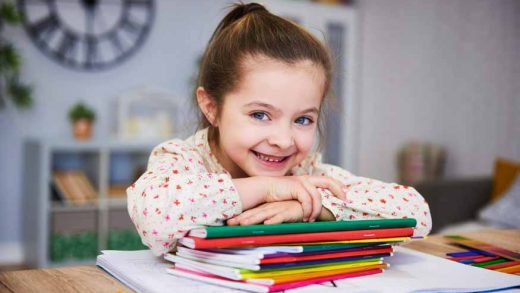Children go through lots of learning and adventures while growing up. Early childhood assessment is like a helpful guide for teachers and parents. It helps them understand how kids are doing in their learning journey. In this article, you’ll explore what assessment in early childhood education is. You’ll also learn the great benefits it brings to the little learners.
Types of Early Childhood Assessments
Early childhood assessment comes in various forms. Each serves a specific purpose, which is to understand and support a child’s development. Here are some common types of early childhood assessments:
- Observational Assessments: Teachers and caregivers observe children during everyday activities and play. It helps to understand their behaviour, interactions, and skills.
- Developmental Screenings: It is a kind of short assessment to identify if a child is meeting developmental milestones. These include language, motor skills, and social-emotional development.
- Portfolio Assessment: It’s a collection of a child’s work, projects, and achievements compiled over time. It showcases their progress.
- Sociometric Assessments: This evaluates a child’s social interactions and relationships within a group.
- Speech and Language Assessments: This evaluates a child’s communication skills, including language development, articulation, and understanding.
- Behavioural Assessments: This focuses on observing and analysing a child’s behaviour in various situations. It helps to understand underlying factors.
Principles of Assessment in Early Childhood Education
Assessment in early childhood education is like a friendly check-up for young learners. Children can show their learning through playing, drawing, and talking. Following are the principles of assessment in early childhood education you should follow:
- Focus on the Whole Child: Assessments should go beyond academics and encompass all domains of development. It includes cognitive skills, social and emotional development, physical development, and communication skills.
- Use Multiple Assessment Methods: A single assessment tool can not provide a complete picture. Use various methods depending on the child and the information you’re seeking.
- Ongoing Process, Not a One-Time Event: Assessment should be an integral part of the learning process, not only a single event. It involves regular tracking of progress and adjusting interventions as needed.
- Collaboration is Key: Effective assessment involves collaboration between educators, parents, and specialists. Share, discuss, and work together to create a whole picture of the child’s development.
- Appropriate for Development: Assessments should be appropriate for the child’s age and developmental stage. Tasks should not be too easy or too difficult to avoid frustration or inaccurate results.
- Respectful and Playful Environment: Create a comfortable and engaging environment for assessments. Use play-based activities whenever possible to cut stress and anxiety for young children.
Benefits of Early Childhood Assessment
Early childhood assessment is not about giving grades. It is about discovering how children are growing. It helps to know what they enjoy and how to help them learn even more. The following are many benefits it offers for both children and caregivers:
- Discovering Strengths and Interests
- Personalised Learning
- Supporting Growth and Development
- Building Strong Foundations
- Communication with Parents
- Preparing for Big School
- Creating Fun Learning Experiences
Early Childhood Assessment helps uncover what kids are good at and what they enjoy. They may love drawing or telling stories – these assessments find those special talents.
The way everyone has a unique fingerprint, kids have their own way of learning. Assessment helps teachers create special lessons that match each child’s style. It makes learning more enjoyable.
It helps to understand where kids are on their learning journey. So teachers and parents can provide the right support. It’s like giving them the perfect tools to help them grow and learn new things.
Early childhood assessment lays the groundwork for future learning. It ensures children have a solid foundation, like building a strong base for a tall, sturdy tower.
These assessments are like a secret code that teachers share with parents. It helps them talk about how their child is doing and how they can work together to support their learning.
As kids grow, they’ll move on to a big school. Early childhood assessment helps make sure they are ready for this exciting step. It gives them the confidence to face new challenges.
Assessment activities are like little adventures that kids embark on. They get to play games, draw pictures, and tell stories. They can show what they’ve learned in a super fun way.
Pros and Cons of Assessment in Early Childhood Education
Early childhood education assessment is a double-edged sword. While it offers valuable insights, there are also potential drawbacks to consider. Here’s a breakdown of the pros and cons of assessment in early childhood education:
Pros
- Assessments can show areas where a child excels and where they might need extra support. This helps educators tailor their teaching methods and curriculum.
- Early assessments can identify potential developmental delays or learning disabilities. Early intervention for these issues can improve a child’s long-term outcomes.
- Assessments can prepare them for kindergarten or school. Educators and parents can work together to bridge the gaps for a smooth transition.
- Assessments provide valuable insights into the child’s strengths, weaknesses, and progress
Cons
- Formal assessments can be stressful for young children. It can create anxiety and hinder their performance.
- Overemphasis on standardised tests can narrow the focus of education. It may not support the holistic development of the child.
- Assessment results can sometimes lead to labelling children. It can be discouraging and create self-esteem issues.
- Assessments need teacher observations and anecdotal reports. They can be subjective and susceptible to unconscious bias.
- Standardised testing can put pressure on educators to focus on test scores. So they can not foster a love of learning and well-rounded development.
Early childhood assessment is not only a test but a comprehensive process. It is like a superhero sidekick in the learning journey of your little ones. It discovers their strengths, supports their growth, and makes learning a joyful experience. By unlocking the benefits of these assessments, you can pave the way for their future. The future holds curiosity, knowledge, and endless possibilities for your youngest learners.
At Kangaroo Kids International Preschool, we provide the best playschool experience for your toddlers. To learn more about our curriculum, contact us today.









